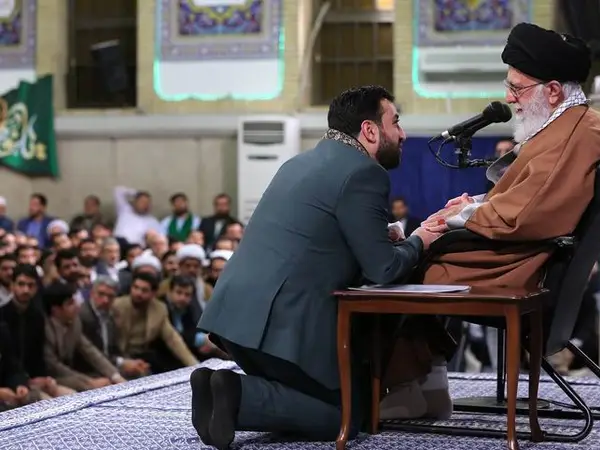Iran’s Supreme Leader Ali Khamenei has agreed to pardon some prisoners and reduce sentences for those arrested during antigovernment protests in recent months.
Government media reported Sunday that Khamenei “agreed” with a proposal made by the country’s Judiciary to take what appears to be a political move to show clemency after hundreds were killed and around 19,000 arrested.
It is not clear from the announcement how many or which prisoners will be pardoned and whose sentences will be reduced. While thousands of young and teenage protesters were arrested in street demonstrations, hundreds of political activists, journalists and writers or artists have also been detained.
In a letter Judiciary chief Gholam-Hossein Mohseni Ejei sent to Khamenei young protesters are highlighted, with the caveat that they “were deceived by enemy propaganda,” and since then have expressed remorse.
Khamenei's move comes at the 44th anniversary of the Islamic Republic, as a move to rescue the image of the regime amid a grim economic crisis and mass public rejection of the political system he presides over. During five months of unrest, protesters unequivocally have been demanding regime change, not partial reforms.
Khamenei gave an early signal in the protests that government officials should label the protests as a foreign conspiracy. Since then, the protests are called “riots” and “enemies” are blamed for instigating the popular uprising. The term ‘enemy’ or ‘enemies’ refers to the United States and its allies.
Many protesters were forced under severe tortures to confess to acts that they did not commit, but they might have signed documents expressing regret. The move can be another tactic to force more dissidents to apologize and sign papers pledging to refrain from further antigovernment protests or even making critical comments.
Although Reuters reported that "tens-of-thousands" will be released, there is no such reference in the official print media. The agency probably quoted a claim made on state television.
Some of the conditions for being pardoned are mentioned in the announcement, including no record of spying for a foreign country, no connection with foreign intelligence services, not facing a charge of murder and no accusation of destroying public property.
However, if a person shared a simple video of protests on social media, the Islamic Republic’s intelligence and the Revolutionary Guard’s secret services easily label it as collaboration with a foreign enemy. There have been numerous cases of a simple social media message sent to someone abroad used against detainees as proof of espionage.
The Islamic Republic is facing a serious political deadlock, with its popularity at an all-time low around 15 percent according to recent polls and with over 8- percent of the population agreeing with regime change.
The regime is also facing serious international isolation particularly by Western countries, partly because of its violent and deadly repression, and also because of its move to supply kamikaze drones to Russia, which are being used against Ukraine.
